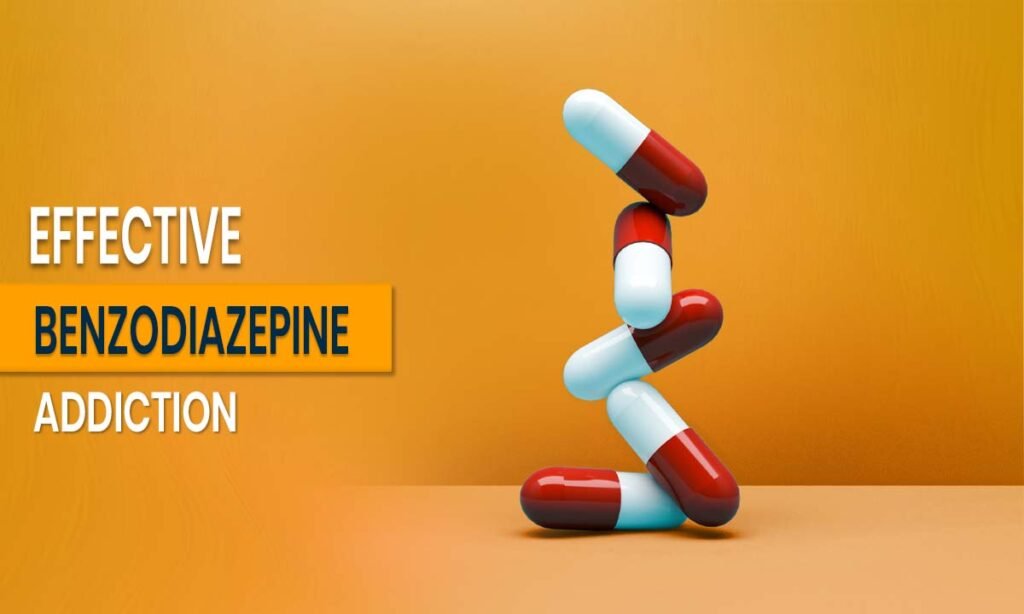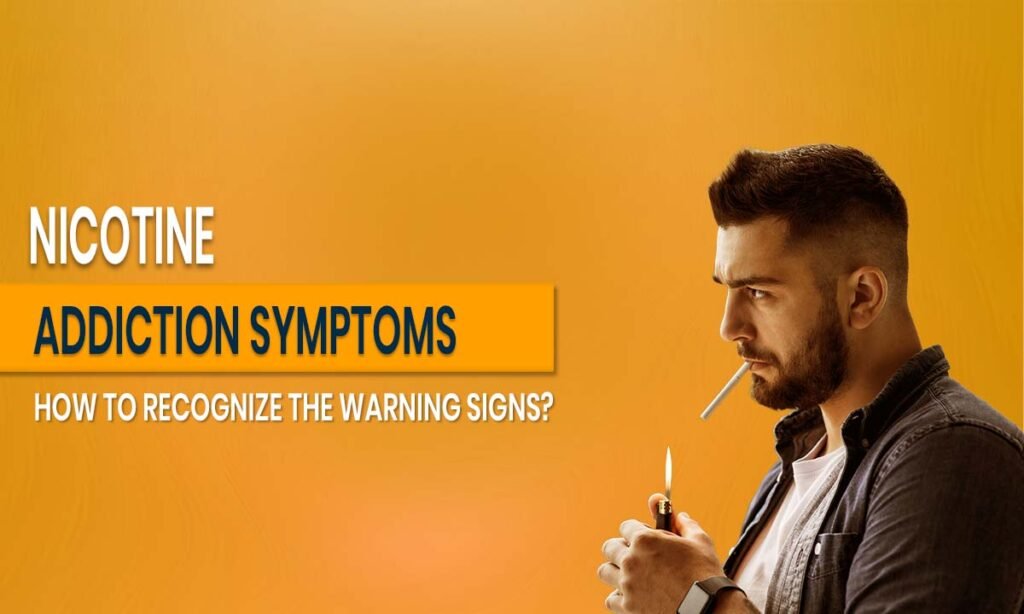
Gambling addiction, also called gambling disorder, is a serious mental health condition that affects millions of people each year globally. Gambling addiction is a state where the individual experiences an uncontrollable urge to gamble despite its negative consequences. Gambling can also be enjoyed as a form of entertainment. However, it becomes an addiction when the compulsive behavior and the need for money consume the person completely.
This mental disorder causes financial troubles, destroys relationships, and hampers the emotional and physical well-being of the person. Recovery is possible with the consistent effort to identify the best near-me mental hospital for gambling addiction. This guide shall provide you an overview of the signs and symptoms of gambling addiction, its causes, preventive methods, treatment options, and the best psychiatric hospital for treatment.
Signs and Symptoms of Gambling Addiction
Gambling addiction often manifests in several different forms. Identifying and recognizing the signs are crucial for getting the effective treatment at the best near-me psychiatric hospital for gambling. Common signs and symptoms include:
- Inability to Stop Gambling: Individuals addicted to gambling often find it hard to resist the continuous urge to play more than required, losing track of time and money.
- Compulsive and Preoccupied Behavior Towards Gambling: Individuals often ponder about the past gambling experience or build new strategies to win the next game, which distracts them from the daily chores of life, affecting their relationships at work and school.
- Running Behind Losses: Gambling addiction leads the person to chase the loss, often causing financial troubles. A person needing more money than required may be a sign of gambling addiction.
- Lying About Gambling: Individuals addicted to gambling may often lie to hide the truth of gambling from their friends and family to avoid being judged.
- Neglecting Responsibilities at Work and School: Gambling completely consumes the person in a way that they prioritize gambling over other responsibilities at work, school, and personal matters. They often strain their relationships and neglect their health as an outcome.
- Financial Instability: Individuals addicted to gambling often steal or borrow money from family or deplete their savings to fund their gambling habits, causing financial problems.
- Emotional Distress, Irritability, and Restlessness: One may also experience physical and psychological symptoms such as depression, stress, anxiety, restlessness, and irritability, causing an urge to play and win the game. These signs may be caused usually when the individual is unable to gamble or loses the game.
- Risk-Taking Behavior: Gambling leads to a state of excitement that may urge the individual to risk higher bets or involve themselves in other risk-taking behaviors, resulting in greater losses, despair, and addiction.
Causes of Gambling Addiction
Gambling addiction is a multifaceted condition, involving a combination of genetic, psychological, and social factors. Understanding these causes can help to identify the right rehab center for treatment and receive the effective care and treatment at the right time. Some of the causes are:
Genetic Factors Leading to Gambling Addiction:
- Biological Predisposition: A strong family history of gambling addiction can increase the susceptibility of younger ones developing impulsive and addictive behavior towards gambling.
- Brain Chemistry: Gambling releases a hormone in the brain called dopamine, also known as the feel-good hormone, which reinforces obsessive behavior towards gambling and increases the chance of being addicted to it.
Psychological Factors Causing Gambling Addiction:
- Self-Esteem Issues and Impulsivity: People with low self-esteem and impulsivity have a higher chance of developing the condition.
- Mental Health Conditions: Mental health conditions such as anxiety and depression can often co-occur with gambling and other addictions. In such a case, one must get treated both for underlying mental disorder and gambling addiction in a rehab near me.
Environmental Factors Causing Gambling Addiction:
- Cultural Normalization: An individual living in an environment where gambling has been normalized has a higher chance of developing an addiction to it.
- Peer Influences: Having a social circle associated with gambling increases the risk of a person engaging in impulsive and compulsive behavior, thereby wanting to fit in with the group.
- Availability of Platforms: Gambling addiction is also increased due to the availability and easy access of casinos and online gambling platforms.
Emotional Influences Increasing the Gambling Addiction:
- Gambling is often sought to be an escape from the negativities of life, such as stress or loneliness. Winning provides an unusual joy for a short period of time, asking the player to play for more games and ultimately leading to addiction.
Preventive Measures for Gambling Addiction
Preventive measures for gambling addiction often help one to not fall prey to gambling behavior. A mental hospital for addiction teaches the following preventive measures to an individual:
- Awareness and Education: Public awareness campaigns to demotivate individuals towards gambling and educating them on healthy behavior help one to not get addicted towards gambling.
- Developing Healthy Coping Techniques: One can develop healthy coping methods such as meditation, reading, listening to music, etc., to cope with stress rather than using gambling as a coping method to deal with emotional turmoil.
- Setting Time and Monetary Limits: Setting strict limits on time and money can reduce the chance of being addicted to gambling.
- Parental Supervision and Guidance: Parents should guide and monitor their children’s exposure to gambling, especially platforms promoting gambling.
- Community Support System: Psychiatric hospitals for gambling addiction in India help build community programs that discourage gambling and provide a platform of sharing experience, thereby preventing the addiction towards gambling.
Treatment Options for Gambling Addiction
Gambling addiction can be treated at the right mental hospital using the following treatment techniques:
Psychotherapy for Treating Gambling Addiction:
- Cognitive Behavioral Therapy (CBT): Cognitive behavioral therapy helps an individual to identify the distorted thought patterns and change them to positive and affirmative thoughts that trigger gambling addiction. A rehab center for gambling addiction helps a person to identify and work on those thoughts.
- Dialectical Behavior Therapy (DBT): Dialectical behavior therapy for addiction teaches emotional regulation, coping skills, and builds tolerance levels, promoting faster recovery.
- Medication Management Used in a rehab center: Gambling addiction has no prescribed medicine to treat the problem; however, antidepressants and mood stabilizers can treat other symptoms associated with the condition.
- Support Group Networks Used in a Psychiatric Hospital: Gamblers Anonymous Groups provide a sense of support, community, and responsibility and work as a sharing platform for one to learn from their previous experiences and successfully overcome addiction.
- Family Therapy to Treat Gambling Addiction: Family therapy used in a rehabilitation center helps to rebuild the broken relationships, improve communications, and create a nurturing environment for recovery.
- Aftercare and Relapse Prevention for Addiction: Recovery does not end when one leaves the rehab center. Post-treatment counseling and follow-ups are crucial for maintaining the recovery and preventing the chances of relapses.
Athena Luxus is the Gambling Addiction For Rehab Center in Delhi NCR
Athena Luxus is the Gambling Addiction Rehab Center in Delhi NCR, India, serves as the premier center for gambling addiction with a team of experienced psychiatrists, psychologists, and social workers. Athena offers a personalized treatment plan, catering to each individual’s unique needs, which helps to address each one’s challenges and goals, thereby improving the overall well-being of the person.
They begin with a thorough assessment to understand each individual’s severity and other underlying mental health conditions. Additionally, the mental health center for gambling addiction also incorporates traditional treatment methods such as yoga, art and music therapy, and mindfulness practices to help them understand their inner self.
The best hospital for addiction provides long-term support to help one to manage their progress and prevent the chances of relapse. Athena Luxus also ensures that family support and therapy are a part of the treatment plan, educating them about their loved one’s condition and creating an environment of understanding and respect. To contact Athena Luxus, dial +91 9718921212 or email at customercare@athenabhs.com.
Conclusion
Gambling addiction is a serious mental health disorder that requires immediate intervention and treatment by a professional psychiatrist to prevent the condition from getting worse. By recognizing the signs and symptoms and finding the best center for treatment of mental disorder, one can mitigate the risk associated with the condition. Athena Behavioral Health in Delhi serves as the leading organization, offering personalized care for individuals battling gambling addiction. The best psychiatric hospital in India ensures that every individual receives the support required to achieve a lifelong recovery and an overall well-being.
Frequently Asked Questions
-
Can gambling addiction be caused by biological factors?
Gambling addiction can often be caused by genetic factors such as having a strong family history of gambling addiction. However, it is more likely to be caused by environmental factors.
-
Does gambling addiction always involve the use of money?
No, gambling addiction can also involve the use of possessions, favors, or points and lead to severe forms of addictive behavior.
-
Is there a specific age range more susceptible to gambling addiction?
Gambling addiction usually affects younger generations due to their greed for easy money and source of curiosity. However, it can affect people of other ages as well.
-
Can gambling addiction affect the physical health of a person?
Yes, gambling addiction can cause insomnia, frequent headaches, or other physical health conditions.
-
Can gambling addiction be treated by recreational therapies?
Treatment for gambling addiction often involves medication management as well as recreational therapies such as art and music therapy to deal with symptoms associated with gambling, such as emotional outbursts and stress.

